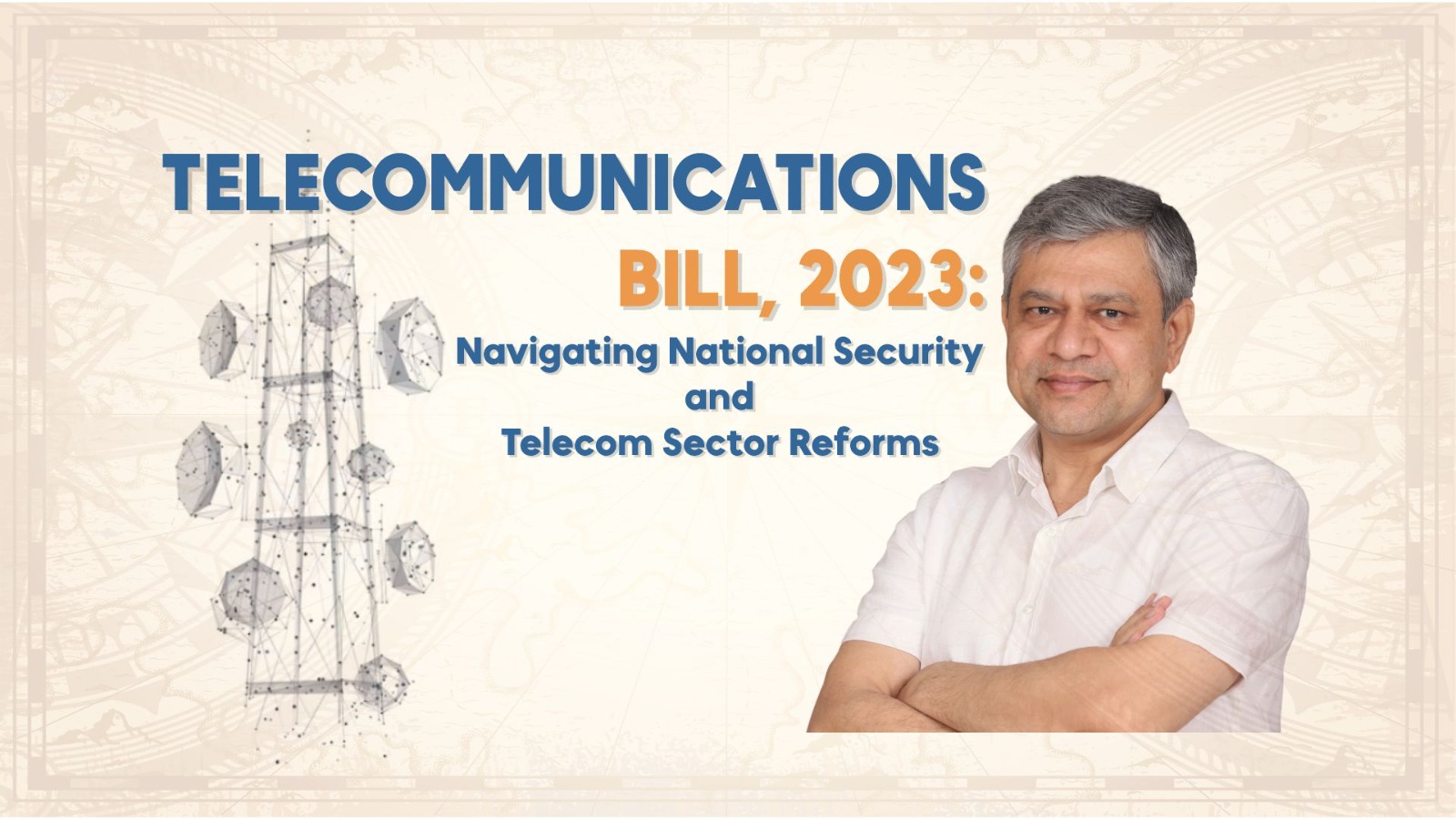In a significant move, the Lok Sabha recently approved the Telecommunications Bill, 2023, a legislative endeavor aimed at addressing national security concerns and introducing substantial reforms in the telecom sector. Spearheaded by Communications Minister Ashwini Vaishnav, the bill garnered approval through a voice vote after a brief but impactful debate.
National Security in Focus:
The key highlight of the bill is its provision allowing the government to temporarily assume control of telecom services in the interest of national security. In cases of public emergencies or for public safety, the central government can take possession of a telecom network. This move is aligned with the global trend of governments securing critical infrastructure during times of crisis.
The bill further empowers the government to halt transmission and intercept messages during public emergencies to prevent incitement for committing offenses. However, it maintains a balance by ensuring that press messages from accredited correspondents to the Centre or state governments remain free from interception unless transmission is prohibited under specific rules applicable to public emergencies or public order.
Structural Reforms in the Telecom Sector:
Minister Vaishnav emphasized that the bill is designed to promote structural reforms in the telecom sector. One notable reform is the allocation of spectrum to satellite communications companies through the administrative method, rejecting the argument for spectrum allocation through auctions made by domestic telecom players like Jio and Vodafone Idea.
The bill specifies that the central government will assign spectrum through auction, except for certain entries listed in the First Schedule. This includes spectrum allocation for global mobile personal communication by satellites, national and international long-distance services, mobile satellite services, VSAT, In-Flight, and maritime connectivity, BSNL, and MTNL.
Penalty Reduction and Protective Measures:
The proposed cap of Rs 5 crore on penalties imposed on telecom operators, down from Rs 50 crore per circle, signifies a more lenient regulatory environment. Additionally, the bill provides protective measures for telecom infrastructure and reinforces provisions for the smooth rollout of networks, especially optical fiber cables.
The government also aims to exempt telecom networks installed on any property from claims, encumbrances, liquidation, or similar issues related to the property. There’s a provision for the termination of spectrum assignment if the government deems the assigned spectrum remains unused without sufficient reasons.
Enhanced Security Measures:
The bill introduces measures to enhance security in the telecom sector. Telecom companies will be required to issue SIM cards only after capturing verifiable biometric data, a step towards preventing the misuse of telecom resources. The bill includes penalties of up to three years in jail or a fine of up to Rs 50 lakh for obtaining SIM cards or other telecom resources through fraud, cheating, or personation.
Repealing Old Laws and Strengthening Legal Framework:
Minister Vaishnaw highlighted that the bill would repeal two laws, including the 138-year-old Indian Telegraph Act, 1885. The proposed legislation is expected to usher in significant reforms, simplifying the authorization process and replacing the current system of multiple licenses with a single authorization. The bill also establishes a four-tier dispute resolution mechanism, aimed at reducing litigation in the sector.
The minister expressed regret over the opposition’s non-participation in the debate, emphasizing that the bill represents the most substantial reforms in the sector to date. He asserted that the legislation would strengthen the legal system for dealing with cybersecurity issues and introduce a regulatory sandbox to encourage innovation.
Conclusion:
The Telecommunications Bill, 2023, stands as a pivotal moment in India’s telecom sector, balancing the imperatives of national security with the need for comprehensive reforms. As it moves through the legislative process, it holds the promise of reshaping the industry, fostering innovation, and addressing the evolving challenges of the digital era. The bill’s implications extend beyond the confines of the telecom sector, touching on issues of governance, security, and technological advancement. Only time will tell how these legislative changes will shape India’s telecom landscape and its role in the global digital economy.

W88ggtntc, another one of these sites huh? I’ve seen a lot of these appear and disappear pretty quickly, so make sure to be careful here. If you want to try: w88ggtntc
So, I tried eejlcasinosignin the other day, and the sign-in was a breeze! No waiting forever, just straight to the games. Thumbs up for that! Fast and efficient! eejlcasinosignin
Heard about Fortunetigerapp, and it does not hold back. It’s nice playing on the go with this app. Get it here: fortunetigerapp.
188betvietnam is something to behold. I can say it is quite awesome and nice. Checkout 188betvietnam now!
Lucky167game is what my friends have been talking up. Thought I would give it a try. Registration was easy, games are running smoothly. If you feel lucky maybe it is worth a shot. lucky167game
Peso63casino? Not gonna lie, I was skeptical at first. But the bonuses are pretty sweet, and I actually won a bit. Worth a shot if you’re looking for something new. Give peso63casino a looksee.
Alright, gotta say, jj804 is smooth. The games load fast, and they have a ton of options. Been grinding here for a few days and no complaints so far. Try jj804!